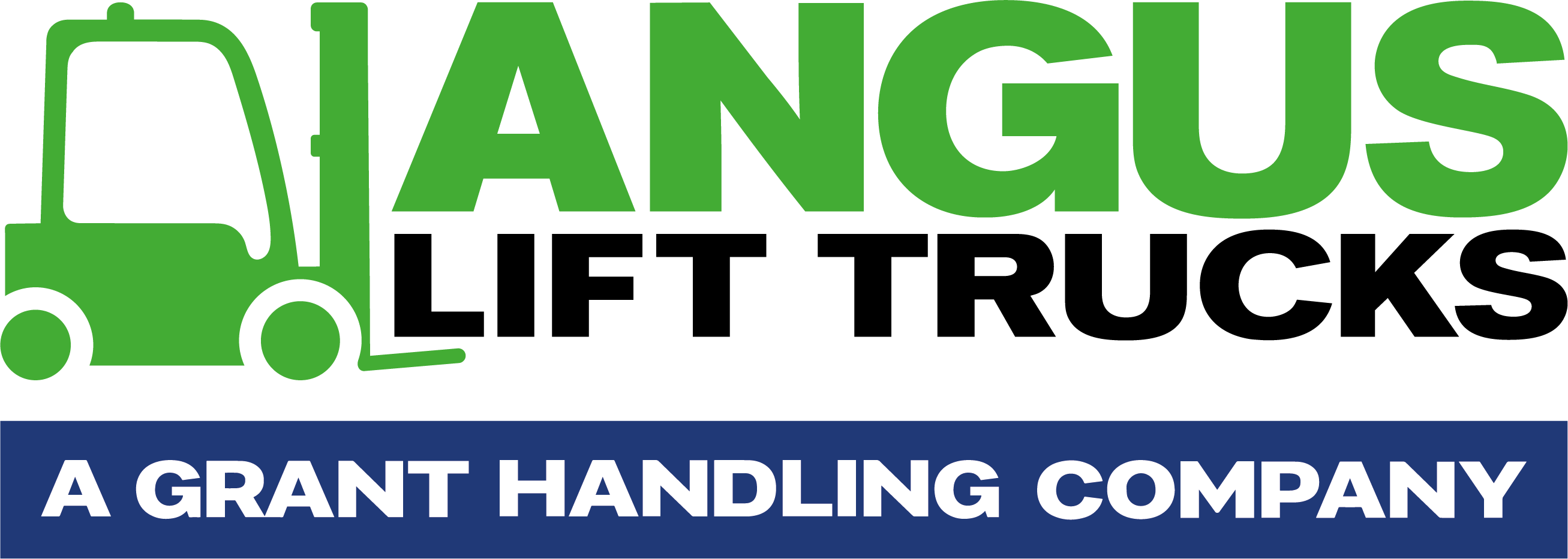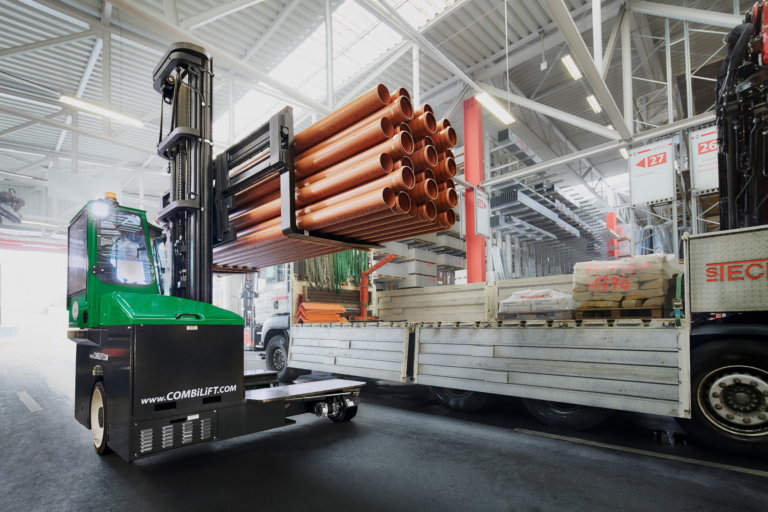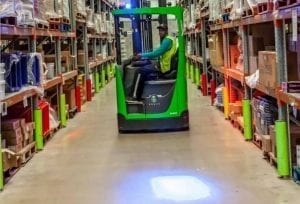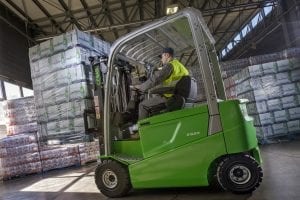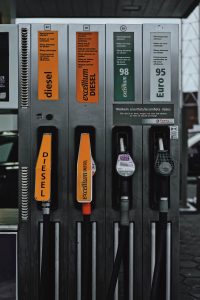The impact of forklifts on the supply chain is enormous. Without forklifts, delivering goods to consumers and intermediaries would be near impossible. Forklifts or lift trucks move goods quickly for a number of growing industries across the world.
Our reliance on forklifts is unquestionable, but many of the forklifts that companies use today have long charging times, present safety hazards, or run on fossil fuels. Thankfully, future technology will only increase forklift efficiency, allowing for smoother supply chain movement at less cost to the operator and the consumer.
The Impact of Forklifts on the Supply Chain
Economists expect that forklift sales will rise in Britain and across the globe over the next several years. That is because forklifts are vital to the current and future supply chain.
The impact of forklifts on the supply chain can’t be overstated. The world has been shifting towards a heavier reliance on eCommerce, and that shift will only be more significant in years to come. That means warehouses filled with products are becoming the norm.
And it’s not just the big brands that rely on huge warehouse inventories to meet their consumers’ needs. Smaller eCommerce companies are shifting towards a Warehouse-as-a-Service (WaaS) model, forced by several growing trends.
In other words, even single-person businesses are sending their goods to warehouses. These warehouses store their goods then handle shipping and logistics when a customer places an order.
Anyplace there’s a warehouse full of goods, there’s a need for buying or hiring forklifts.
Why Electric Forklifts Benefit the Supply Chain
Of course, the gas-powered dinosaurs of yesterday won’t cut it, given today’s supply chain demands. Gas-powered forklifts are noisy, pollution gluttons that don’t work well in warehouses. Both consumers and warehouse workers demand a better option.
That’s the other reason forklift sales are projected to grow, and with it the need for servicing and training too. Many companies will need to exchange their old forklift fleets for greener, smoother-running electric models.
In fact, EU legislation, published in 2009, states that the EU fleet-wide emission target for new cars starting in 2020 is a low 95g CO2 per Km.
Though forklifts don’t fall within this legislation, many predict it’s only a matter of time before they gain legislative attention. So, many companies are choosing to make the switch now rather than wait until the government forces their hand.
Given that there are many benefits to switching to an electric, iron-phosphate, or hydrogen-powered forklift fleet, it makes sense to make the shift as soon as it’s feasible.
Electric and hydrogen-powered forklifts weren’t the norm thirty years ago, but now they’re growing in popularity. That’s because today’s models are quiet, smooth-running, and easy to maintain. They also do particularly well in warehouse environments which offer controlled temperatures and the ability to install charging infrastructure easily.
Smooth-running, easy to maintain forklifts can make the supply chain more efficient, allowing consumers to get their goods on time. Plus, they enable companies to boast low or zero-emissions standards to their customers. In an ever more green-conscious world, that’s a big selling point.
On top of that, futuristic forklifts utilise technology to become safer for operators and warehouse workers. That means fewer accidents, fewer collisions, and fewer injuries, allowing the supply chain to run more smoothly.
Looking to Buy or Hire
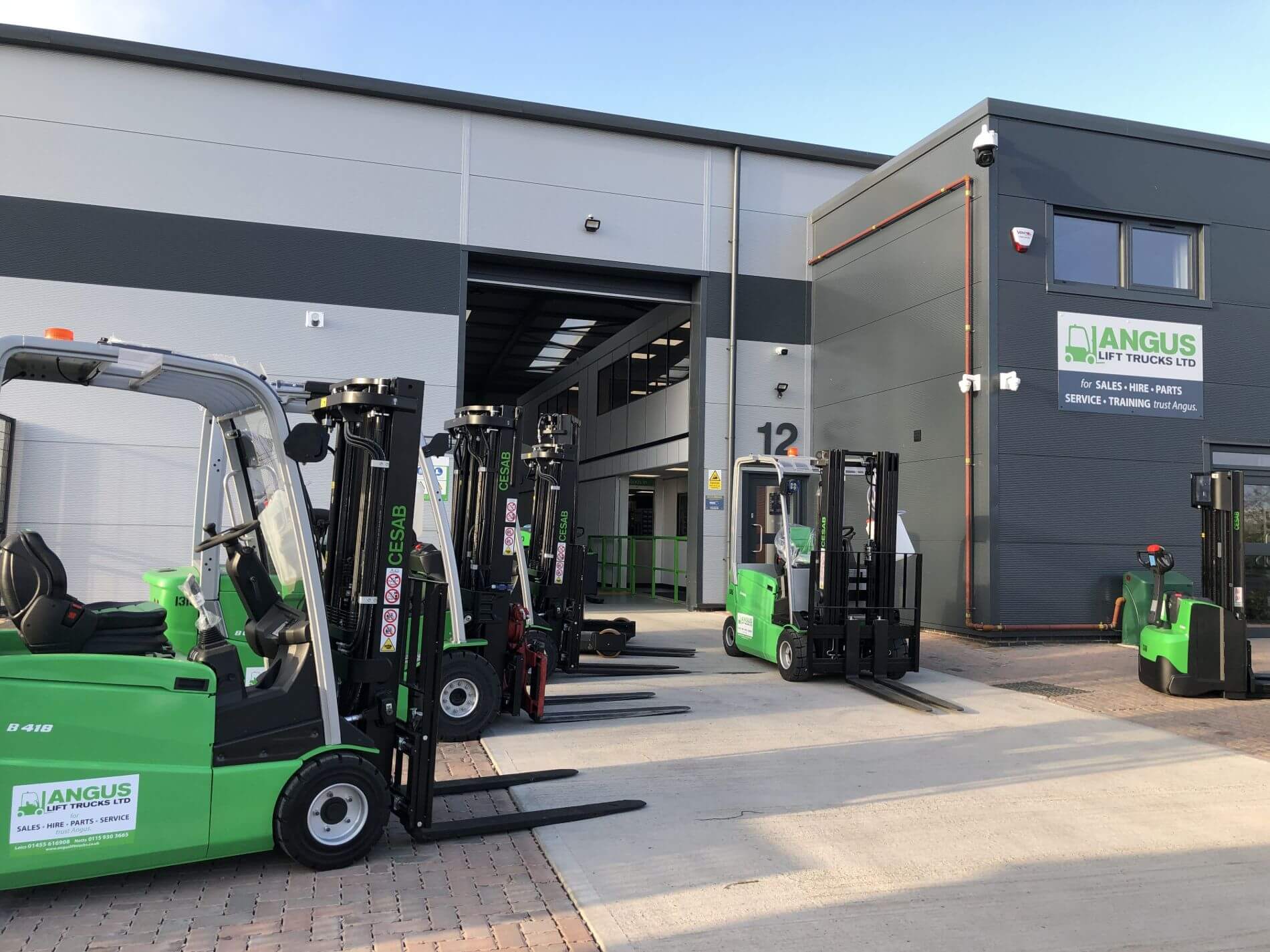
a forklift?
With 35+ years of experience, we offer our most competitive rates, flexible finance, 4h service promise & more!
Present and Future Electric Forklift Options
Since the impact of forklifts on the supply chain is significant, it’s important to understand the various electric and hydrogen-powered forklift options.
Lead-Acid Batteries
The first electric forklifts used lead-acid batteries, and many companies still rely on fleets powered by this somewhat outdated technology. Lead-acid batteries are inexpensive, but they have some major downsides that lead to decreased supply chain efficiency.
For one thing, operators must remove lead-acid batteries from the forklift to charge them. Not only is this a cumbersome job, but it also presents a safety hazard should any of the acid spill out.
Once operators remove the batteries to a charging station, they need eight hours to reach full capacity. Then, they require an additional eight hours of cooling before being used again.
Beyond that, lead-acid batteries require regular watering and voltage equalisation, which means maintenance on them can be significant. That’s incredibly inefficient for a piece of equipment!
Lithium-Ion Batteries
The downsides to lead-acid batteries have led many companies to invest in lithium-ion battery forklifts instead. Lithium-ion batteries are the same energy source that power Teslas and other EVs, and the technology surrounding them is becoming more commonplace.
The cost of lithium-ion forklifts and the necessary infrastructure to use them is high initially, but the investment tends to pay off thanks to their unmatched efficiency.
With a lithium-ion forklift, there’s no need to remove the battery for charging. Instead, operators simply plug the entire machine in. One charge can last through two shifts or about 16 hours, and there’s no cooling time post-charge. Plus, lithium-ion battery forklifts require next to no maintenance. There are no watering or voltage equalisation requirements.
Hydrogen Fuel Cells
Some companies are moving past lithium-ion batteries and opting for hydrogen fuel cells in their forklifts instead. Hydrogen fuel cells aren’t exactly new; NASA has been using them to power space missions since their inception. However, we didn’t see them in forklifts until about 15 years ago.
Hydrogen forklifts have some major benefits. They produce zero emissions and can refuel in about three minutes, making them incredibly efficient and ready to meet today’s supply chain demands.
Better yet, unlike other electric options, hydrogen fuel cells don’t see any decrease in efficiency in low temperatures. So, facilities that use refrigeration or freezers can greatly benefit from hydrogen lift trucks.
However, installing the refueling infrastructure that hydrogen fuel cells need can be costly and difficult to implement. At Angus Lift Trucks we believe that, for the time being, lithium-ion batteries are the better option.
Other Forklift Improvements that Benefit the Supply Chain
Emerging technology can also affect the positive impact of forklifts on the supply chain. By using telemetry data and AI tech, companies can further increase efficiency, ensuring consumers and intermediaries get their goods fast.
Telemetry Data
Telemetry refers to the automatic recording and transmission of data to an IT system from a different location. In other words, it’s real-time information that managers outside a warehouse can receive so they can make quick decisions. By managing inefficiencies as they happen, companies can reduce supply chain issues and cut costs.
Today’s best forklifts are already equipped with devices that allow them to communicate with warehouse manufacturing systems in real-time. As this technology progresses, the information they provide will only become more relevant and valuable.
Currently, lift trucks often have the ability to track things like idle time and safety procedures. Some also have GPS, which can provide their real-time location to management.
Information like this allows companies to see and quickly respond to issues like high-collision risk areas and route inefficiencies. That can greatly decrease a company’s costs and translate to fewer supply chain hold-ups.
Artificial Intelligence
There are many skeptics when it comes to AI. After all, science has promised to provide artificial intelligence in various forms for years, and each time there’s a breakthrough, it doesn’t seem all that impressive.
Self-driving cars, for example, were promised years ago. And though there have been massive improvements, we still have to man our vehicles.
With lift trucks, however, AI is much closer to taking the reins. That’s because forklifts function in a relatively predictable, closed environment. Unlike regular cars, there’s no weather or real traffic patterns to deal with.
Instead, forklifts are often inside a warehouse where a company has full control. Lift trucks have predictable routes, regular lighting, and they don’t have to worry about a child running into a road or a person crossing the street.
So, automated forklifts that capitalise on AI technology will likely become a supply chain staple. After all, with an automated forklift, there’s no need for coffee breaks or time off. There’s also far less human risk involved. That means companies will save big time as automation takes over.
Even now, though forklifts aren’t fully automated yet, we can already see the effects of AI tech on the supply chain. For example, many lift trucks have computer vision, a form of AI. With it, these trucks can “see” their surroundings.
They’re able to create 3D maps and find their way around obstacles. They can also identify where to best position themselves to lift a heavy load.
Computer vision has already increased efficiencies in the supply chain and led to fewer accidents. As AI becomes more prevalent, so will automated forklifts, which means faster supply chain progress.
Final Thoughts
Forklifts or lift trucks have a huge impact on the supply chain, especially as the world’s reliance on e-commerce grows. More and more businesses, even small ones, rely on warehouses to store and ship their goods, which means forklifts are necessary for most industries.
As forklift technology progresses, the supply chain will see fewer impediments. Electric forklifts, automated forklifts, and telemetry data can all decrease inefficiencies, so consumers get their goods faster and companies see more cost savings.
Of course, if you require forklift sales, hire, training, or maintenance services across Midlands and the UK, at Angus Lift Trucks we always provide our most competitive prices in Leicestershire, Northamptonshire, Birmingham, Warwickshire, Nottinghamshire, Derbyshire, East Midlands, and West Midlands
This post is also available in:
Français
Deutsch
Italiano
Português
Español
Български
Hrvatski
Eesti
Latviešu
Lietuvių
Polski
Português
Русский
Slovenčina
Slovenščina
Türkçe
Українська
Albanian
Čeština
Dansk
Nederlands
Ελληνικά
Magyar
Română
